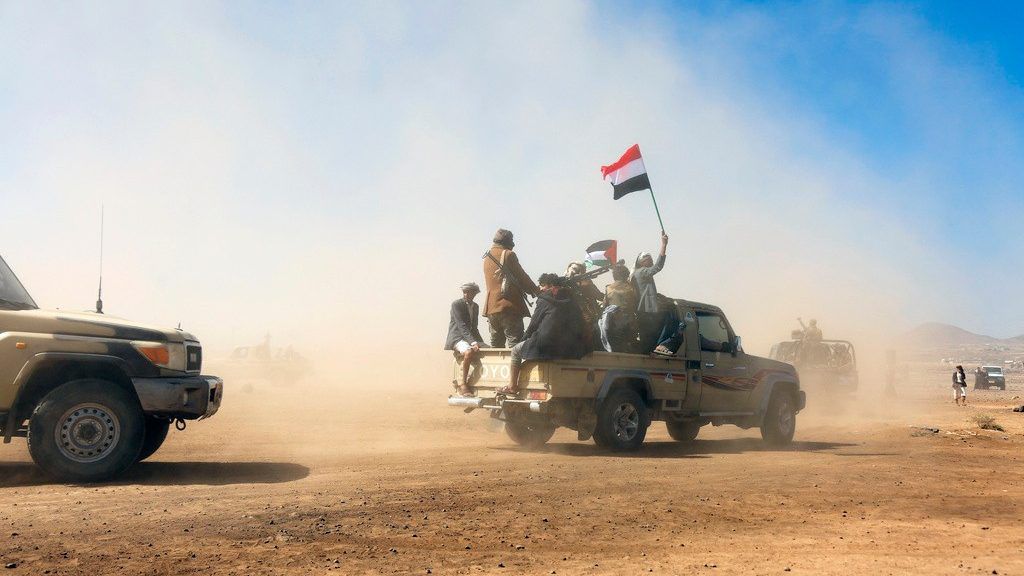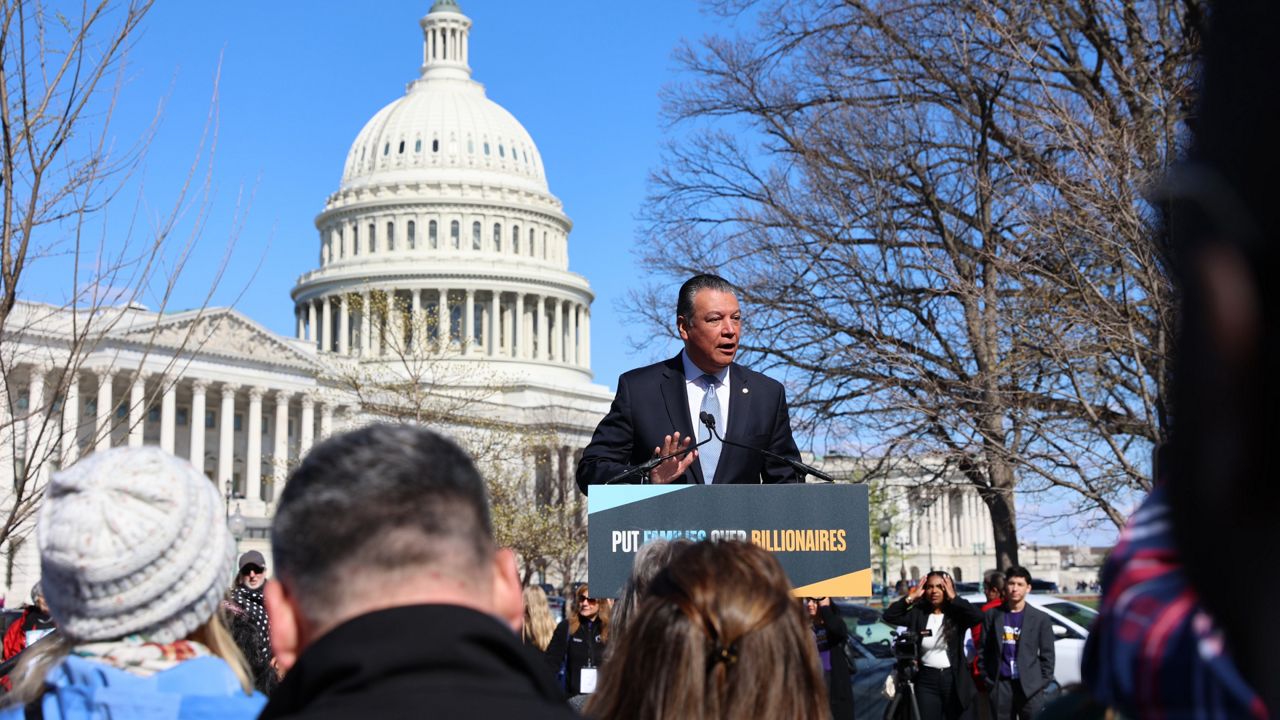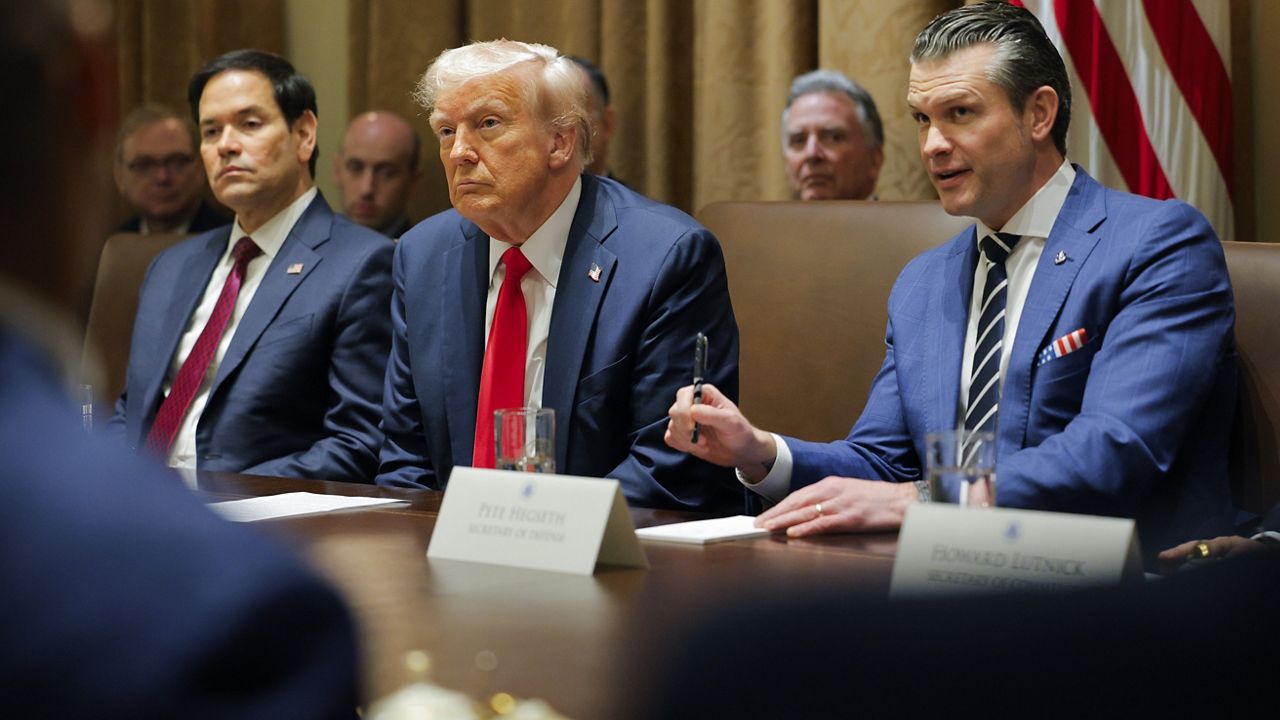The United States announced that it will recognize the Iran-backed Houthi rebels — an anti-Western separatist movement that has split off from the existing government of Yemen — as a terrorist organization in the wake of recent attacks on vessels in the Red Sea.
The move allows for stringent economic sanctions under a 2000s-era executive order designed to constrict funding going to terrorist organizations.
The Houthis, known formally as Ansar Allah, have become more visible on the world stage since using the war between Israel and Hamas as a pretense to attack shipping vessels traveling into the Red Sea. Since beginning attacks on merchant ships in October, the Houthis have attacked nearly 30 ships, including attacks on American naval ships and members of a military defense coalition.
"These attacks are a clear example of terrorism, a violation of international law, a major threat to lives and global commerce, and they jeopardize the delivery of humanitarian assistance," a senior administration official told reporters Tuesday. "We've taken this action to pressure the Houthis to cease their terrorist activity, including missile and drone attacks against international shipping."
The designation comes one day after the U.S. carried out new strikes against the Houthi rebels in Yemen, targeting and destroying anti-ship ballistic missiles in the third such military action since last week.
The goal of the sanctions, U.S. officials said, is to convince the Houthis to deescalate and end their pattern of attacks — a change that could later lead to the designation, and related sanctions, being removed.
The Biden administration is taking the action under an executive order originally signed by then-President George Bush on Sept. 23, 2001, in response to the Sept. 11, 2001, terrorist attacks. The Specially Designated Global Terrorists designation blocks a designated person from using the U.S. financial system — essentially, it seeks to cut them off from any donations, transactions or assets they need to keep up their campaign.
Administration officials also suggested that many large banks operating internationally will also comply with economic sanctions, preventing transactions through those systems as well.
The sanctions are intended to specifically target the Houthi, without disrupting humanitaran efforts to help Yemeni civilians. Special carveouts in the designation will allow commercial shipments to continue into Yemeni ports, bringing food, medicine and fuel to the people of Yemen.
The designation will take effect 30 days after Wednesday’s announcement. In the interim, the U.S. will publish five general licenses for conducting business in Yemen, authorizing transactions related to providing food; medicine and medical equipment; fuel; personal remittances between individuals; telecommunications; and port and airport operations. The U.S. will also work with contractors, nongovernmental organizations and certain international organizations providing humanitarian assistance.
"I think we’re always trying to make sure that the impact of our sanctions achieves the desired foreign policy effects while minimizing unintended consequences," a senior administration official said. "The SDGT allows us the possibility of making sure that we are continuing to — in our efforts to resolve the conflict in Yemen, to deliver humanitarian assistance — make sure that there aren't unintended consequences for the humanitarian situation and the people of Yemen."
The sanctions, officials said, are part of a broader strategy to cut power and support from the Houthis, working in concert with the ongoing coalition defending ships, as well as U.S. strikes against Houthi military targets — attacks that haven’t yet deterred Houthi strikes.
What remains to be seen is how the sanctions will disrupt Iranian support for the Houthis. Iran is believed to be the greatest supporter of the Houthis — providing funding, weapons and training — and the U.S. has longstanding sanctions against Iran.
Officials say they think the special designation will "apply additional pressure for the Houthis to change [their] behavior and turn away from Iran."
"Our goal is to continue to make clear that the United States is going to protect freedom of navigation protect our personnel protect the billions from terrorist attacks in international waters," an official told reporters. "I think you'll continue to see us think about the tools in our toolkit and deploy them in a way that is well-synced and coordinated across the sanction, military and diplomatic space."








